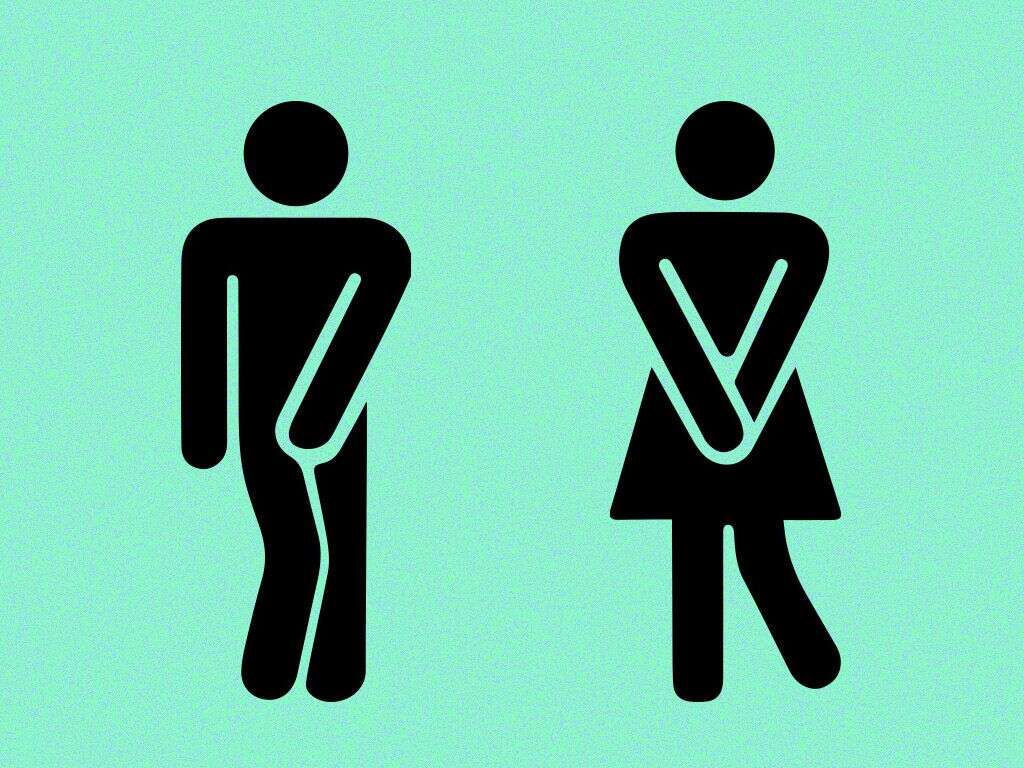What Is Dysuria?
Dysuria is a condition commonly characterized by pain, discomfort, or a burning sensation experienced during urination. The condition can occur in both men and women of any age, although women are generally more likely to experience it than men due to the anatomy of the female outer urinary organs, which includes a shorter urethra.
This makes it easier for harmful microorganisms to get into the urinary tract, including the bladder. Such microorganisms may then cause urinary tract infections, which are the most common cause of painful urination. In men, dysuria is more likely to occur in older men, although males of other ages can also get dysuria.
1. Symptoms of Dysuria
The symptoms of dysuria manifest differently for men and women. When a man experiences the pain before urination, it usually indicates that he may have a urinary tract infection. However, if they experience it after urination, it might point to a more serious problem involving the prostrate or the bladder. On the other hand, women have either internal or external dysuria symptoms. Internal pain generally indicates that a woman may have a urinary tract infection. And if the pain is experienced externally, the dysuria might be the result of irritation or inflammation of the sensitive skin.
2. Causes of Dysuria
As mentioned earlier, the most common cause of dysuria is urinary tract infections. However, there are many other factors that may cause painful urination. These include other related conditions such as sexually transmitted infections, ovarian cysts, and kidney stones.
Beyond medical conditions, dysuria may also be caused by irritation as a result of sexual activity, physical activities such as horse riding or cycling, vaginal changes as a result of menopause, and use of personal care products such as scented soaps, douches, or spermicides. In some cases, painful urination can be a side effect of some prescription medication or treatments.

3. Dysuria and Related Diseases
Urinary tract infections are the most closely linked condition to painful urination. Besides dysuria, these infections may also lead to foul smelling, cloudy or bloody urine, and fever.
Other conditions associated with painful urination include kidney stones, and STIs such as gonorrhea, syphilis, and chlamydia. In the case of these STIs, the dysuria may be accompanied with additional symptoms like itching, blisters, and abnormal discharge. Dysuria may also be linked to yeast infections of the vagina.
4. Complications of Dysuria
Dysuria can cause discomfort and interfere with a person’s quality of life. It may also signify a more serious underlying condition such as UTIs, STIs, and kidney stones. Leaving the condition untreated can cause the underlying conditions to worsen.
Complications of dysuria depend on the underlying cause, and include anemia, acute renal failure, sepsis, infertility, and cancers of the urinary tract. For this reason, it is important that you see a doctor if you experience painful urination that may be a symptom of dysuria.

5. Diagnosis
If you visit a doctor with symptoms suggestive of dysuria, the doctor will ask you to describe your symptoms. The doctor may also ask about your sexual history in order to determine whether an STI might be the cause of your symptoms.
He may then ask for a urine sample for laboratory analysis. If white blood cells are present in the urine sample, it indicates that the patient may have an infection in the urinary tract. A urine culture may then be carried out to find out if there is any infection, and if so, the cause of the infection. This will help the doctor decide on the appropriate treatment. If the doctor does not find any sign of infection, additional tests may be necessary. These may include taking a swab sample from the lining of the vagina or urethra in order to check for signs of infection.
6. Treatment
The first step of treating dysuria is to determine the cause of the pain. Therefore, the treatment prescribed for a patients dysuria depends on the specific causative factor. Urinary tract infections are usually treated with antibiotics. If skin irritation caused by inflammation is found to be the cause of painful urination, it is advisable that you avoid the cause of the irritation.
Moreover, if another underlying condition affecting the bladder or prostate is found to be the cause, the dysuria is managed by treating that underlying condition. Lifestyle changes like drinking more water can also help to reduce the discomfort.

7. Disease Process
As mentioned earlier, there are many factors that can lead to the development of dysuria. Therefore, the process differs from one person to the other. All in all, a bacterial urinary tract infection is the most common cause of dysuria. These harmful bacteria enter the bladder through the urethra.
They cause inflammation that leads to pain or discomfort when urine passes through the inflamed part. Other medical conditions and physical activities that cause inflammation or irritation in the urinary tract can also lead to painful urination.
8. Dietary Changes for Dysuria
Making some dietary changes can help reduce the pain and discomfort associated with dysuria. The changes include enriching your diet with fruits and vegetables like guava, citrus fruits, cranberry juice, watermelon, eggplant, broccoli, and berries.
These foods are high in healing vitamins such as vitamin C, antioxidants and anti-inflammatory compounds. You should also drink more fluid, especially water, to aid in cleansing the urinary tract and keep your body hydrated. At the same time, it is advisable to avoid drinks containing caffeine, artificial sweeteners like aspartame, alcohol, and fizzy drinks like soda.

9. Lifestyle Changes
In addition to diet, incorporating some lifestyle changes can help in your recovery from dysuria, such as regular exercise. However, you need to be careful about your choice of exercise because, as mentioned above, some physical activities can cause irritation in the urinary tract.
Therefore, opt for gentle exercises such as walking, jogging, or swimming, instead of extreme sports like running, wrestling, or boxing.
10. Outlook
It is important to see a doctor if you experience painful urination. This is because dysuria might be a symptom of a more serious underlying disease that won’t go away without treatment. The good thing is that a majority of the conditions that cause dysuria can easily be treated with medication.
And once the underlying condition is identified, and treated, full recovery from dysuria is achieved. On the other hand, if the condition is not diagnosed and treated, it can lead to serious long-term complications like infertility, kidney failure, cancer, sepsis, or even death. For this reason, it is important to visit a doctor without delay if you have symptoms of dysuria.











